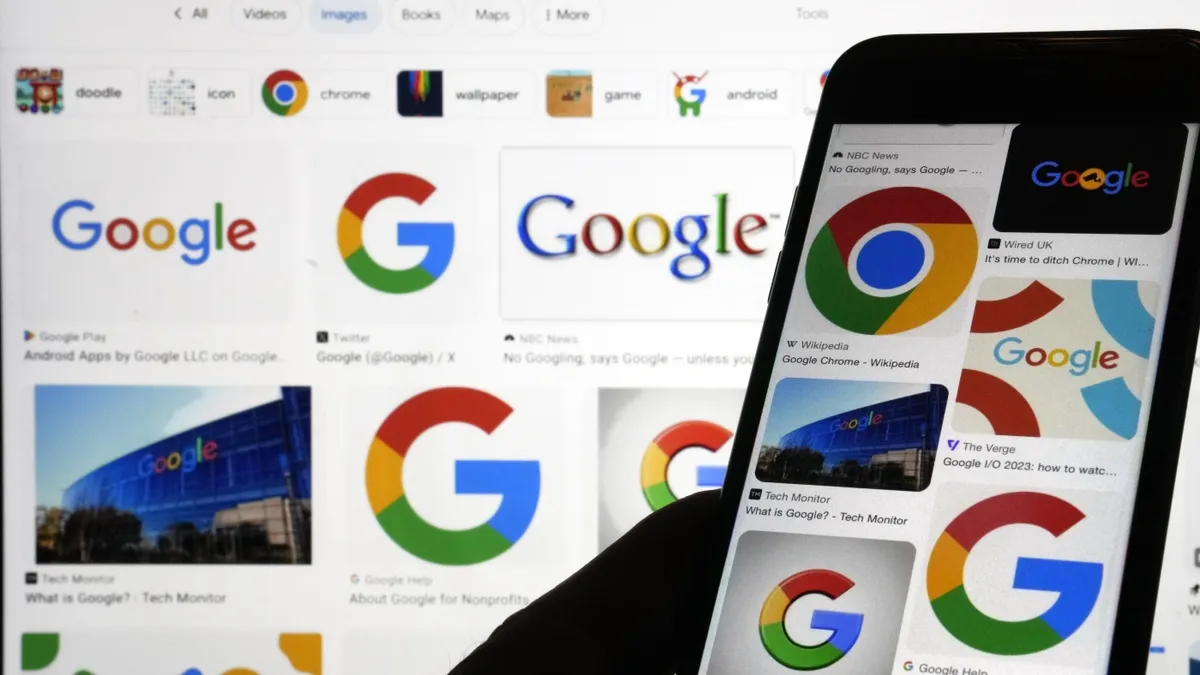
On Monday, Google returns to court for the crucial final phase of a significant antitrust case that could ultimately lead to its breakup. This decision could send shockwaves throughout the tech industry and fundamentally alter the landscape of internet search. The Justice Department, along with a coalition of states, initially accused Google in 2020 of engaging in anti-competitive practices by financially incentivizing manufacturers of web browsers and smartphones to designate Google as their default search engine.
In a landmark ruling last summer, U.S. District Judge Amit Mehta confirmed the allegations after a lengthy 10-week trial, declaring that Google operates as a monopolist and has taken steps to preserve its monopoly status. Despite its nearly $2 trillion valuation, Google has indicated it plans to appeal the ruling, although it is unable to do so until this current phase of the trial concludes. "People don't use Google because they have to — they use it because they want to," stated Lee-Anne Mulholland, Google's Vice President for Regulatory Affairs, in December.
Starting Monday, Judge Mehta will oversee hearings expected to last several weeks. During this time, the Justice Department and Google will present their contrasting perspectives on appropriate remedies for the company's alleged monopolistic behavior. Following these arguments, Judge Mehta will determine what actions should be taken. The government is advocating for a judicial order to halt Google's financial arrangements with third-party phone manufacturers, such as Apple, which reinforce its default search engine position. They are also calling for Google to divest its Chrome web browser and potentially sell off its Android operating system, which is the most widely used smartphone OS globally.
Google's Chrome browser is the leading web browser in the world, and its Android OS comes preloaded with Google apps, including Chrome. The tech giant's highly lucrative advertising business significantly relies on data collected through user interactions on both Chrome and its search engine. In a pre-hearing brief, Google's legal team contended that the proposed remedies from the Justice Department do not align with the anticompetitive conduct established during the trial. They argued that these measures could harm consumers, stifle innovation, and hinder competition in the search engine market and adjacent sectors, potentially forcing users onto less effective alternatives.
Rebecca Haw Allensworth, an antitrust professor at Vanderbilt Law School, emphasized the case's potential to redefine digital market regulations. "This case could set the tone for what antitrust enforcement looks like in digital markets," she noted, highlighting the notion that having a successful and innovative product does not grant immunity from monopolistic practices. The precedent set by this case is reminiscent of the last major tech-related antitrust case against Microsoft, which commenced in 1998 and revolved around the company's bundling of its Internet Explorer browser with Windows.
John Newman, an expert in antitrust law from The University of Miami, posited that a decisive ruling in favor of the government's recommendations could lead to significant changes in the tech innovation environment. "If the judge grants all the government's requests, the landscape could become radically different for tech startups, especially those focused on generative artificial intelligence," he explained. Currently, Google serves as a dominant force, often acting as the default option for users, which may deter them from exploring alternative search engines.
The Justice Department initially proposed that Google should divest its investments in artificial intelligence, particularly regarding its $3 billion investment in Anthropic, a company known for developing the Claude large language model. However, in March, the DOJ revised its stance, expressing concerns about Google's influence in the AI sector while deciding against a blanket divestiture, citing potential unintended consequences for the rapidly evolving AI landscape.
As Big Tech continues to face increased scrutiny, the Google antitrust hearing arrives on the heels of a separate ruling against the company in Virginia, where a U.S. District Court judge determined that Google illegally maintained a monopoly in certain online advertising technologies. This ongoing legal battle signals a pivotal moment for not only Google but for the broader tech industry as it navigates the complexities of competition, innovation, and regulatory oversight.